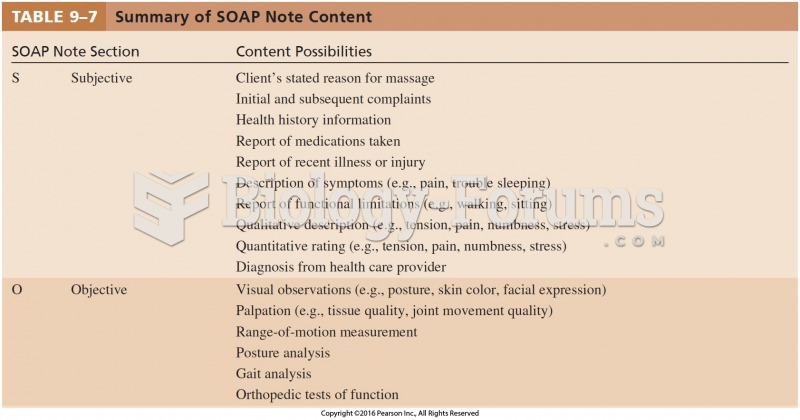|
|
|
Elderly adults are at greatest risk of stroke and myocardial infarction and have the most to gain from prophylaxis. Patients ages 60 to 80 years with blood pressures above 160/90 mm Hg should benefit from antihypertensive treatment.
Human stomach acid is strong enough to dissolve small pieces of metal such as razor blades or staples.
Allergies play a major part in the health of children. The most prevalent childhood allergies are milk, egg, soy, wheat, peanuts, tree nuts, and seafood.
A seasonal flu vaccine is the best way to reduce the chances you will get seasonal influenza and spread it to others.
When intravenous medications are involved in adverse drug events, their harmful effects may occur more rapidly, and be more severe than errors with oral medications. This is due to the direct administration into the bloodstream.
 Young adults increase in self-esteem between the ages of 18 and 25, according to this longitudinal s
Young adults increase in self-esteem between the ages of 18 and 25, according to this longitudinal s
 An orange-red biohazard symbol indicates that bloodborne pathogens may be present, and items should ...
An orange-red biohazard symbol indicates that bloodborne pathogens may be present, and items should ...





